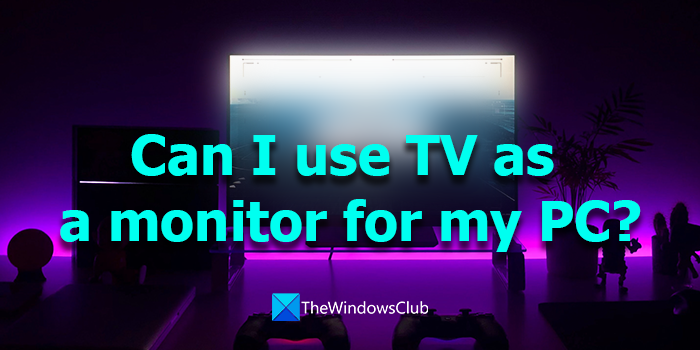What is the difference between a computer monitor and a TV?
A computer monitor and a TV are different from one another in many aspects from resolutions to size. The difference between a monitor and a tv are as follows:
Size: Monitors are comparatively smaller than Televisions. Monitors are usually viewed from a close distance, unlike televisions which are viewed from a distance. You see the bigger sizes of televisions in showrooms but monitor sizes are constrained to fit on a table.Aspect Ratio: You can find monitors with 4:3 as well as 16:9 aspect ratios, unlike televisions which are designed to watch films and series that come with a 16:9 aspect ratio nowadays.Image Quality and resolution: Both monitors and televisions are available in bigger resolutions up to 8K. You need to shell out more money to get bigger-resolution monitors or televisions. Pixels are not dense on televisions compared to monitors as they are designed to watch from a distance compared to monitors. The image quality on a monitor is much better than tv if we consider them as external monitors.Refresh rate: The refresh rate on a monitor is much better than the refresh rate of a television. Monitors are developed even for gaming with better refresh rates. You can find televisions for gaming but you have to pay more.Viewing Angle: Monitors have a viewing angle of 110 degrees, unlike tv which has a viewing angle of 160 degrees.Input lag: Monitors have much less input lag compared to television.
These are the difference between a monitor and a television.
Can I use TV as a Monitor for my PC?
Yes, you can use the TV as a monitor for your PC. To use a television as a monitor, follow the below steps. Let’s get into the details.
1] Requirements to use TV as a monitor for PC
To use a television as a monitor for your PC, you need to have a High Definition Multimedia Interface (HDMI) port on the television and a cable to connect it to your PC. You need to have an HDMI cable that supports full HD image transmissions. A standard HDMI cable allows 720p and 1080p image transmission. If you cannot find an HDMI port on your laptop or PC, you can use Digital Visual Interface (DVI) setup. This system does not support audio signals, unlike HDMI. You can also connect your tv and PC wirelessly using casting devices such as Chromecast or such devices. Once you have the required cable or devices, you can proceed to the next step.
2] Connecting TV to PC
If you choose to connect your TV in the wired route, you should plug the HDMI cable into its ports on both the TV and your PC. You don’t need to do anything after plugging in the ports other than changing the TV screen to an HDMI screen using the buttons on the television remote. If you choose to connect your TV wirelessly, plug in the Chromecast or other casting device in the USB port on the television and select the device to mirror the screen on the TV. You can use the Project option in the taskbar icons and follow the on-screen steps to connect. The latest smart televisions do not even require a casting device. You can mirror your laptop screen using the WiFi connection. There may be some lag in the image transmission.
3] Adjusting Settings
Once you have connected the tv to your PC, you can adjust the resolution on your PC to suit the television’s resolution and vice versa. You can even change the colors and modes on your television using its remote for a better image. Once you have adjusted the settings, you can use the TV as the primary or secondary monitor as per your liking. This is how you can connect a tv to your PC and use it as a monitor.
Why Use a TV as a Monitor for Your PC?
There might be many reasons for using a TV as a monitor for your PC. You might like the big screen a TV offers, or you have a spare TV in your home that can be used effectively as a monitor which you might be thinking to buy. Or it might be a temporary monitor for your laptop until the real monitor arrives. You might even save some money by buying a big-screen TV at a cheaper price than a monitor. Related read: Second Monitor is zoomed-in on Windows computer.

